Over the past five years administering the NOPEC Energized Community (NEC) Grant Program, NOPEC has provided crucial funding for many of the energy efficiency projects our member communities have undertaken. In 2021 we created the NOPEC Green Ribbon Award so communities could share their successful energy efficiency project stories and give other communities the opportunity to learn from their experiences.
One of the 2021 Green Ribbon Award recipients, the Village of Chippewa Lake, has demonstrated that when it comes to energy efficiency projects, an understanding of your community’s available resources, and a little bit of patience, can go a long way.
In 2015, the Village of Chippewa Lake, along with a volunteer citizens committee appointed by village council, began investigating ways they could decrease their municipality’s energy consumption.
After doing some research, the committee discovered that upgrading the village’s streetlight technology could decrease energy usage by up to 75%. “Streetlight energy consumption had been a huge portion of the village energy bill, as in many municipalities,” said Mark Krosse, a village resident and key member of the volunteer citizens committee.
At the time, the village had over 100 high-pressure sodium (HPS) streetlights that were almost 40 years old and consumed nearly 57,000 kilowatt-hours (kWh) of electricity annually—the equivalent energy consumption of 5-10 average Ohio homes. The committee found that HPS streetlights also create maintenance and safety issues, as they contain mercury and need to be replaced yearly. They also researched the ecological impacts of the existing technology and found that HPS streetlights caused a glare that disoriented birds which was critical given Chippewa Lake is located along a major migratory bird flyway.
The volunteer citizens committee and Village Council concluded that an upgrade to LED streetlights would be the best option, both fiscally and environmentally.
“Unfortunately, the direct purchase and maintenance of LED streetlights was not an option,” said Krosse. “The village does not have an infrastructure maintenance department.” The only realistic option was to consider upgrading through their public electric utility, which had recently introduced an “Experimental LED Streetlight” tariff offering. The one-time upgrade charge for each replacement, however, was unaffordable for the village. For the next few years, Village Council and the volunteer citizens committee continued to research funding opportunities and more affordable options.
In 2020, after a few years of patiently waiting, the village was able to execute the upgrade.
Their public utility improved the terms of its LED streetlight tariff and reduced the one-time conversion costs. They began offering free 30W LED replacements for failing HPS bulbs. “This, plus the use of the village’s accumulating NEC Grant dollars, allowed the village to cover the one-time tariff costs,” said Krosse. “The stars had now aligned.”
By mid-2021, the village had replaced 100 of their HPS streetlights with 30W LED fixtures, creating a projected energy savings of 41,000 kWh annually, the equivalent energy consumption of 4-8 average Ohio homes. Village safety and maintenance cost have improved, as LED lights only need to be replaced once every 10-15 years and do not contain harmful materials. The LED lights create substantially less glare, allowing the Village to protect an important migratory flyway. Under the leadership of Councilperson Barb Hunter, the village will be replacing the remaining failing HPS units with LEDs one-by-one.
Mark Krosse and the Village of Chippewa Lake had this advice to pass along to other communities:
“Know your NOPEC grant and how to use it. Engage with your public utility to understand how to best use tariff terms.”
Nominations for the 2022 Green Ribbon Award are now open. Nominate your community’s energy-efficiency project for a chance to win $2,500 for future energy efficiency initiatives. Projects funded by NOPEC’s Energized Community Grant are eligible. Contact the Community Outreach team at outreach@nopec.org with any questions.


